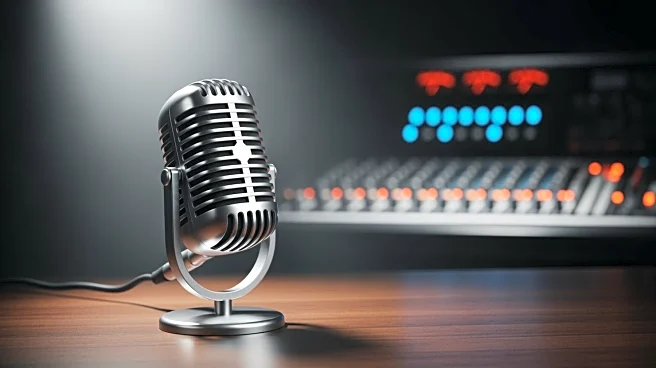What's Happening?
The BBC has issued an apology to President Trump for a misleading edit of his January 6, 2021 speech, which was featured in a documentary titled 'Trump: A Second Chance?' aired before the 2024 U.S. presidential election. The edit spliced together parts
of Trump's speech, creating the impression of a continuous call for violent action, which the BBC acknowledged was unintentional. Despite the apology, the BBC has rejected Trump's $1 billion defamation claim, stating there is no basis for such a lawsuit. The documentary's edit omitted sections where Trump called for peaceful demonstrations, leading to the resignation of BBC's Director-General Tim Davie and news chief Deborah Turness. Legal experts suggest Trump may face challenges in pursuing the case in court due to expired deadlines and the documentary not being shown in the U.S.
Why It's Important?
The BBC's apology and the subsequent rejection of President Trump's defamation claim highlight ongoing tensions between media organizations and political figures. This incident underscores the challenges media outlets face in accurately representing political speeches, especially those with significant implications. The situation also reflects the broader issue of media accountability and the potential legal ramifications of editorial decisions. While the BBC has apologized, the refusal to compensate Trump could influence future interactions between media entities and political figures, potentially affecting public trust in media reporting.
What's Next?
While the BBC has apologized, it remains to be seen if President Trump will pursue further legal action or seek alternative resolutions. The incident may prompt media organizations to review their editorial practices to prevent similar occurrences. Additionally, the resignation of key BBC figures could lead to changes in leadership and policy within the organization. The broader implications for media accountability and political relations may continue to unfold, influencing future media coverage of political events.
Beyond the Headlines
The ethical dimensions of media representation and the responsibility of broadcasters to accurately portray political figures are central to this story. The incident raises questions about the balance between editorial freedom and accountability, as well as the potential impact on public perception of political figures. The resignation of BBC leaders also highlights the personal and professional consequences of editorial decisions, emphasizing the importance of integrity in media practices.















